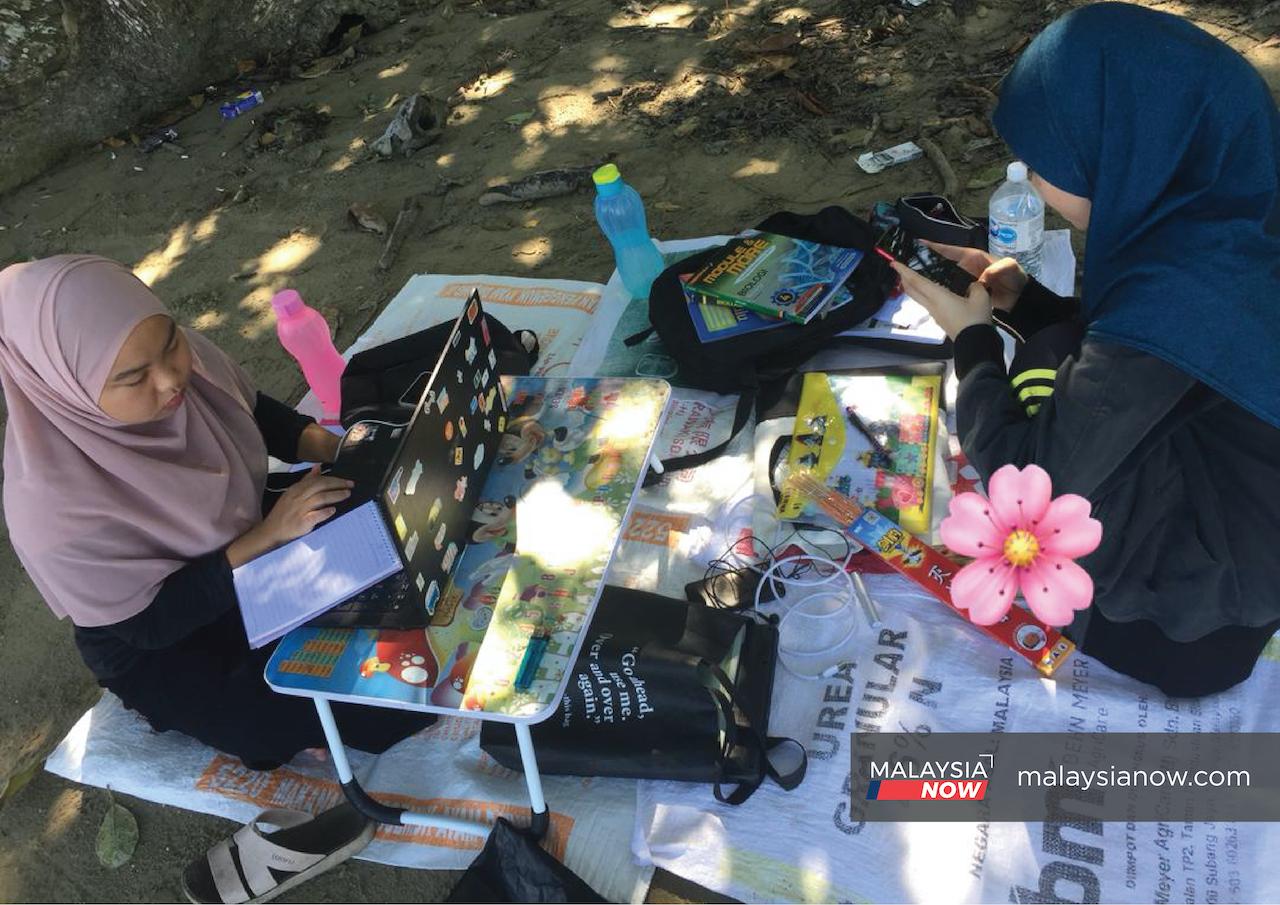Sun, sea, sand and school for children in Sarawak fishing village
Their parents do what they can to provide the devices needed for home-based learning, but with internet connectivity out of their hands, drastic measures are needed.
Just In
When the government ordered schools to close and the implementation of home-based teaching and learning amid a fierce spike in Covid-19 cases, Zurani Suut and her husband Mazlan immediately knew they would do whatever it took to make sure their two girls could keep up with their lessons.
The first thing they did was to make a trip to town from their small village of Kampung Nyalau in Bintulu, Sarawak, to buy a smartphone for their eldest daughter, who is in Form Two.
“We didn’t want her to miss out on her lessons,” 32-year-old Zurani told MalaysiaNow.
But to study from home in the midst of a pandemic requires more than a phone, so while they could ill afford it, Zurani and Mazlan knew they would have to spend more.
For example, the household would now need an internet plan so that the girls could log in for their classes.
Whatever Mazlan earned as a fisherman was needed for daily costs, so to cover this additional expense, Zurani began making and selling cakes.
With some scrimping and saving, they managed to get by, surviving largely on the fish Mazlan caught and fresh produce from their little farm.
What they couldn’t beat, though, was the poor connectivity in the village.
Some of their neighbours lived on higher ground and were lucky enough to have a better network. For Zurani and her family, though, stable internet connection was a hit and miss affair.
Although the children could still keep up with some of their lessons through the educational programmes broadcast on television, after a while they knew they would have to get creative.
Every weekday now, they and other children from the village who cannot access the internet from their homes pack their bags and head to the beach.
But while a trip to the beach would spell fun in the sun at any other time, these outings are for serious business.
Once they arrive, they spread out their belongings on sheets of newspaper to protect them from the sand, and they get down to work.
Away from the trees and next to the sea, the internet signal is much stronger and they are able to follow more of their classes than they would have at home.
Eventually, the sun moves overhead and the heat begins to take its toll. But the family sticks it out, waiting for hours as the classes progress.
“Usually they will be at the beach for three to four hours,” Zurani said.
Sometimes it rains, and classes at the beach are out of the question. Whenever this happens, Zurani’s children tell their teachers that they are unable to attend as the weather is bad.
“I feel sad looking at this situation, but at the same time I am proud because of their spirit,” Zurani said.
“The problem is the poor connection. I wonder why industrial factories can be built in this area but to build one communications tower seems so difficult.”
Despite the challenges, she hopes the children in the village will not give up. But she also hopes for a little assistance from the powers that be.
“Where is the so-called caring government?” she asked. “If they care about us, please help our children.”
Subscribe to our newsletter
To be updated with all the latest news and analyses daily.
